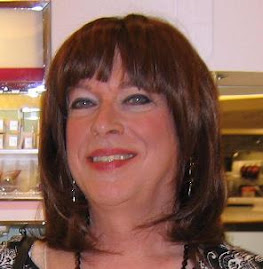For what it's worth, I will be going to the Virginia State Convention this year. I was selected to be one of the people who select the four delegates who will go to the national convention. Yes, there are more than four delegates from Virginia; the rest are chosen by elected officials and other important people, not us grassrooters. The actual total for Virginia is 132. Of the four, two men and two women are selected at the convention.
I actually have no idea as to what is expected of me, so I started doing a bit of research. I found a document called 2012 Delegate Selection Rules for the Democratic National Convention. This is a generic document that describes how each state chooses their delegates.
I expected to find a one pager or, at most, a short document. This is, after all, just for how the states choose delegates, not for the actual convention.
It is 98 pages long.
I read past the Non-Discrimination section and the Affirmative Action section. When I got to page 7 and rule 7, Inclusion Programs (one long paragraph), I saw the first reference to LGBT:
The Democratic National Committee recognizes that other groups of Americans in addition to those described in Rule 6 may be underrepresented in Party affairs. These groups include members of the LGBT community, people with disabilities, and youth. The National and State Parties shall adopt and implement Inclusion Programs in order to achieve the full participation of members of these and other groups in the delegate selection process and in all party affairs, as indicated by their presence in the Democratic electorate. As is already the practice in some states, State Parties may use goals to achieve these ends; however, in no event may such participation be accomplished by the use of quotas.
On page 17, in the convolutedly entitled Regulations of the Rules and Bylaws Committee section I found Regulation 4.7, Rules 5.C, 6.A, and 7. Paragraph B reads:
Rule 7 requires State Parties to develop a plan intended to secure the full participation in the delegate selection process of LGBT Americans, people with disabilities, youth, and other groups the State Party may deem necessary, commensurate with each group’s participation in the state’s Democratic electorate. Consistent with this rule, State Parties must take reasonable steps to determine the participation of these groups in the state’s Democratic electorate.
and paragraph C.iii. says:
A program to achieve full participation by additional under-represented groups as required under Rule 7 [Inclusion Programs, copied above], provided, however, that in lieu of a separate inclusion program, a state plan may establish goals, with methodology, and timetables for the under-represented groups identified in Rule 7 (LGBT Americans, people with disabilities, and youth), as well as other groups the State Party determines to be underrepresented.
It doesn't bother me that LGBT seems to be closely tied to "and people with disabilities." At least they didn't write "and people with other disabilities."
They're trying hard to list under-represented groups so they can maybe someday possibly get them off the list of underrepresented groups. It bothers me more that we're in an "underrepresented group" list.
I did a search through the document for "trans." The results of that search is the subject of today's post.
We have a long way to go.
Tuesday, May 15, 2012
Subscribe to:
Post Comments (Atom)


We have a longer way to go than your post would postulate. It seems to me that the 'B' and 'T' are often gratuitous add-ons to the "LG" engine. I can grasp some of the issues that impact "LGs" and, of course, many of the disparite issues faced by those in the "T" world ~ depending on their respective spot at any given point in time on the spectrum. I remain confused as to who is in the "B" group and what rights they may be seeking.
ReplyDelete98 pages of balderdash put together by the 'party'. Someone has a weird sense of humor. Other than those who put this together how many people do you think have read as much of it as you have.
It seems to me to be the inclusion of gratuitous language for no real effect. Much ado about nothing.
Pat
Right on all counts, Pat.
ReplyDeleteI suspect that we are not an under represented group in terms of numbers, given that there a number of cross dressers in every walk of life, why would we think that politics is exempt, it is just that it is harder to be out and in politics. I have it on reasonably good authority that there are some cross dressers in parliament at the moment and at least one former cabinet minister.
ReplyDelete